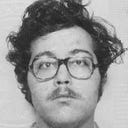Elections Have Consequences
Under Lina Kahn’s leadership, the Federal Trade Commission has been aggressive in the pursuit of anti-competitive behavior.
They have now expanded their investigations to cover private equity driven consolidation of specialist medical practices.
We see this in the FTC action against the private equity firm Welsh Carson Anderson & Stowe (WCAS) which created U.S. Anesthesia Partners (USAP) in attempt to monopolize various markets:
The Federal Trade Commission on Thursday filed suit against private equity firm Welsh Carson Anderson & Stowe (WCAS), accusing it of suppressing competition and driving up prices for anesthesiology services in Texas.
Why it matters: This could be the tip of an antitrust spear aimed at private equity, after decades of avoidance.
Backstory: WCAS in 2012 announced the formation of U.S. Anesthesia Partners (USAP), a platform that would acquire anesthesia services groups.
- Today it reports having over 700 facility partners in eight states that serve over two million patients annually,
- Much of its focus has been on Texas, which USAP breaks out into four separate regions on its website.
Lawsuit: The FTC alleges that WCAS and USAP were involved in a “multi-year anticompetitive scheme” that hurt patient pocketbooks for the sake of profits.
Matt Stoller does a very informative deep dive on this:
………
That’s the phrase [Cha-Ching!] that an executive at private equity-owned financial firm U.S. Anesthesia Partners (USAP) used after acquiring yet another Texas anesthesiology practice, with the intent of hiking prices on Texas patients. And “Cha-ching!” was the right way to put it, since the excess profits amounted to tens, or even hundreds of millions of dollars, in just one medical specialty, in just one state.
But the new quote should be ‘uh oh.’ Because today, the Federal Trade Commission, led by Chair Lina Khan, filed suit against USAP for monopolization, as well as its owner, New York City-based private equity firm Welsh Carson, which from its offices on Park Avenue engineered the entire strategy of gouging patients in Texas. It’s an important suit, for reasons I’ll go into, and it also reflects a more aggressive antitrust enforcement regime, and skepticism of private equity in health care.
………
What Welsh Carson did is ripped from that playbook. And the FTC’s suit against it, similarly, calls out that playbook as wholly illegal. The complaint is good reading, chock full of incriminating emails.
The story starts in 2012, when an anesthesiologist executive named John Rizzo emailed a Welsh Carson partner, D. Scott Mackesy, observing that the market for such services in Texas was fragmented, with firms competing against each other for hospital and insurance business based on lower prices and better quality.
A competitive and healthy market, to Rizzo, was bad. And so he proposed a monopolization strategy where the PE firm would buy up a whole bunch of clinics in specific cities, like Dallas and Houston. The idea was, as Welsh Carson partner Brian Regan put it, to “consolidate practices with high market share in a few key markets,” and then use “leverage with commercial payors” to raise prices for anesthesia care.………
The FTC noted what happened next.
Since its creation, USAP has acquired more than a dozen anesthesiology practices in Texas. As it bought each one, the FTC says, USAP raised the acquired group’s rates to USAP’s higher rates — resulting in a substantial mark-up for the same doctors as before. This roll-up strategy has made it the dominant provider of anesthesia services in Texas and in many of the state’s metropolitan areas, including Houston and Dallas. USAP’s size and prices now dwarf those of its rivals.
………
Welsh Carson and USAP engaged in the same monopolization scheme throughout Texas, but they tacked on two additional tactics, both of which are variants of price-fixing. First, they cut deals with independent anesthesia groups at key hospitals in Houston and Dallas to work together to charge higher prices. Second, according to the FTC, they “secured a promise from another large anesthesia services provider to stay out of USAP’s territory,” which is illegal market allocation.
The scheme cost Texans tens of millions of dollars, if not much more. Welsh Carson got $350 million of dividends between 2012 and 2020, and physicians who sold their practices likely reaped significant profits as well. Indeed, one insurance executive noted the goal of USAP’s acquisition strategy was to take its massively inflated prices — far higher than anyone else in the industry — “and then peanut butter spread that across the entire state of Texas.”
Up until about 1980, not only would this be prosecuted, but the Department of Justice would target the executives behind this criminally.
We should get back to this. These executives need to be frog marched out of their offices in handcuffs.
